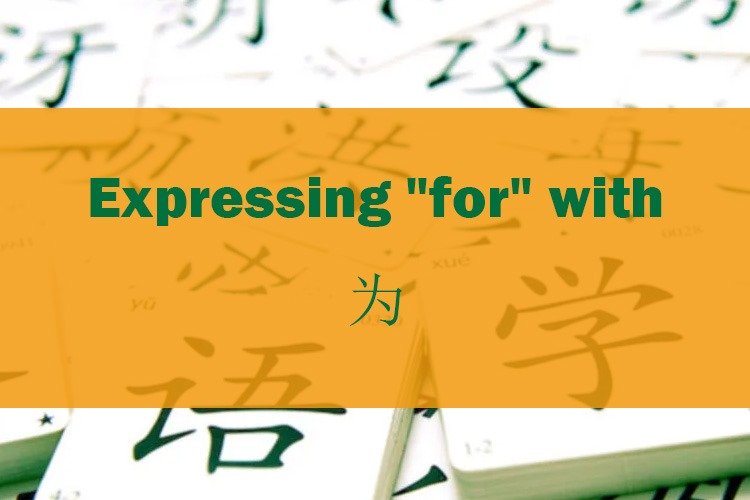Expressing "for" with "为wèi"
When you work for a company or do other sorts of physical (and even mental) activities for another party, you're likely to use the Chinese preposition 为wèi.
This character is often translated into English as "for," but is sometimes unnatural or unnecessary, depending on the particular phrase.
Subject + 为wèi + Party + Verb / Adj.
Wǒ yě xiǎng wèi zhège dìfāng zuò yīxiē shìqíng.
我也想为这个地方做一些事情。
I also want to do something for this place.
Tā wèi gōngsī gōngzuòle sān niánle
她为公司工作了三年了。
She has been working for the company for three years.
Míngtiān de lánqiú bǐsài, nǐ kěyǐ lái wèi wǒmen jiāyóu.
明天的篮球比赛,你可以来为我們加油。
You can come and cheer for us in the basketball game tomorrow.
• Don't confuse this preposition 为wèi with 为了wèi le, which is a bit different. 为了wèile is most often used to indicate the purpose of an action or the person that will benefit from some act of kindness. 为了wèi le can be placed at the beginning of the sentence, but 为wè cannot be placed at the beginning of the sentence.
为wèi:Māma wèi zhège jiā zuòle hěnduō shìqíng.
妈妈为这个家做了很多事情。
Mom has done a lot for this family.
为了wèi le:Wèile ràng jiārén gèng jiànkāng, Wǒ de māma měitiān dōu zuò bù yīyàng de cài.
为了让家人更健康,我的妈妈每天都做不一样的菜。
In order to make the family healthier, my mother cooks different dishes every day.


